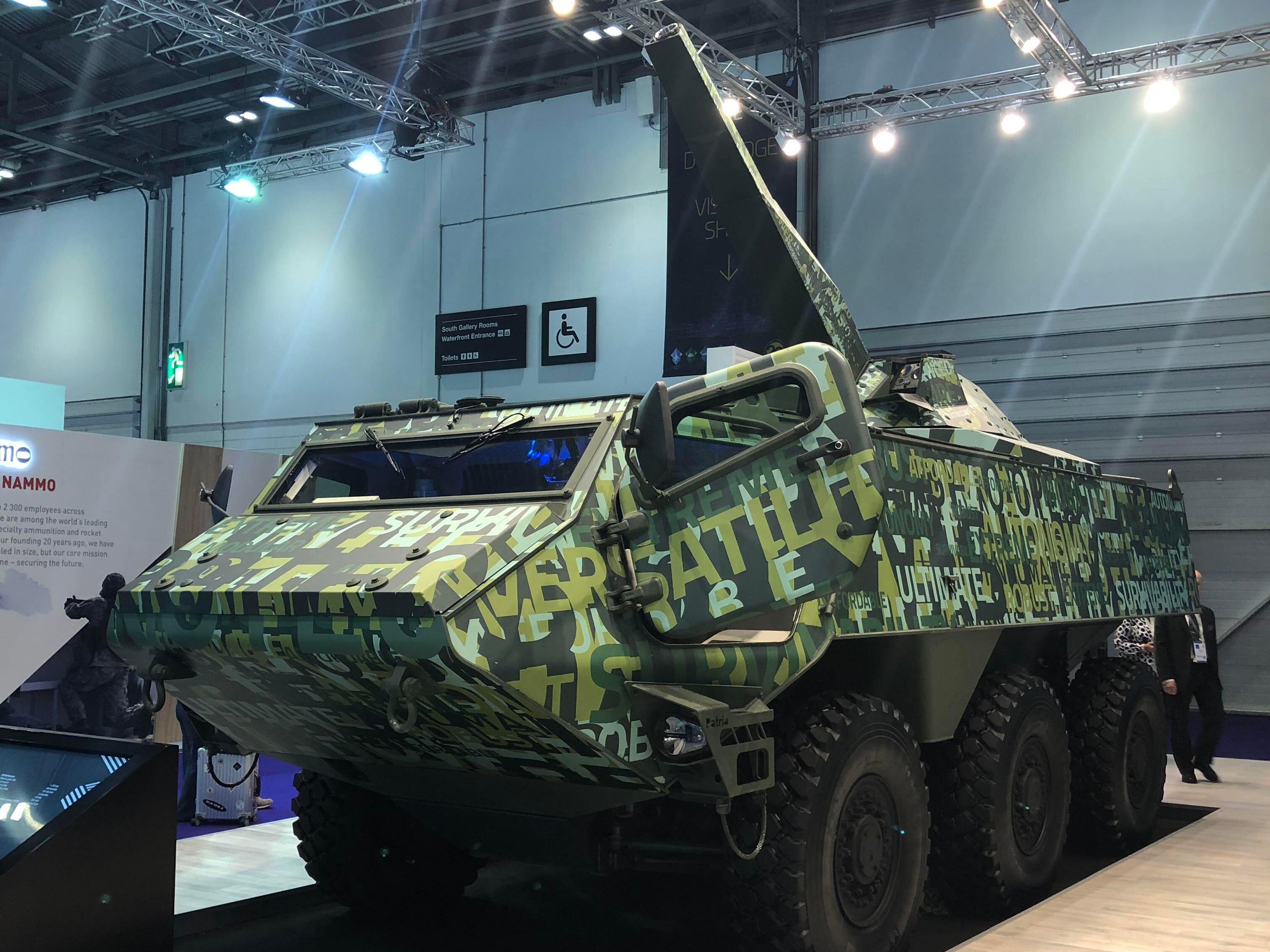UPDATE — Due to an incomplete Army-issued press release, this story has been updated to reflect the project includes efforts to find solutions to improve the entire field artillery resupply system using autonomy rather than a focus on the autoloader for the ERCA cannon as previously planned.
WASHINGTON — The U.S. Army has picked six companies to work on ways to improve the currently cumbersome, taxing and sometimes risky munitions resupply system for field artillery units operating M109 Paladin howitzers, according to a Jan. 24 Army Futures Command statement.
The Army is also working on an autoloader for the service’s future Extended-Range Cannon Artillery program and plans to field it by 2024. The service toyed with the idea of tapping non-traditional business to come up with a new autoloader but decided instead to go with a government-developed autoloader technology demonstrator, which is being tested at Yuma Proving Ground, Arizona, and shifted the cohort’s focus to improve the entire system that resupplies munitions to the guns.
The companies — Actuate (formerly Aegis Systems, Inc.); Apptronik, Inc.; Carnegie Robotics LLC; Pratt & Miller Engineering; Neya Systems, LLC; and Hivemapper, Inc. — will work under the Army Capability Accelerator and the Army Applications Laboratory as part of the Field Artillery Autonomous Resupply “cohort” and will come up with novel, outside-of-the-box concepts to improve how field artillery units get munitions into the field and into the guns.
Efforts will include contributions to an entire resupply system from ordering, to a tracking system, to a transport method and even how ammunition is packaged, according to an Army spokeswoman, in order to make resupply faster and more efficient.
RELATED

The Army Applications Laboratory, or AAL, is part of Futures Command, the Army’s new four-star command in charge of rapid modernization that will align with the service’s new developing doctrine.
The cohort began work on Jan. 13 in Austin, Texas, where the AAL and Futures Command reside, and will wrap up work with capability presentations on April 2, the statement noted.
“Sourced from across the country, the selected companies represent a range of technologies and expertise all aimed at developing autonomous resupply capabilities,” the statement read.
Among the companies selected, Actuate specializes in artificial intelligence focusing on computer vision software that turns any security camera into an “intruder- and threat-detecting smart camera," the release stated.
Apptronik is a robotics company spun out of the Human Centered Robotics Lab at the University of Texas at Austin.
Pittsburgh, Pennsylvania-based Carnegie Robotics specializes in robotic sensors and platforms for defense, agriculture, mining, infrastructure and energy applications. It was founded out of Carnegie Mellon University’s National Robotics Engineering Center.
Pratt & Miller has been focusing on technology challenges in the motor sports, defense and mobility industries.
Neya Systems, also from Pittsburgh, is another robotics company focused on advanced unmanned systems, off-road autonomy and self-driving vehicle technologies.
Through mapping, visualization and analytic tools, Hivemapper uncovers changes normally missed by the human eye and uses that technology to assess damage after disasters as well as manage construction and build situational intelligence during military operations.
RELATED

The AAL has become the face of doing business with the Army in the startup community. It set up shop in the heart of Austin within an innovation incubator hub called the Capital Factory. Anyone can walk through an open garage door and pitch ideas to the Army. But the armed service is also going to companies to seek solutions.
“Designed for small businesses and companies that don’t typically work with the federal government, the program connects qualified companies that want to grow a new line of business into the [Department of Defense] with Army stakeholders who want to speed capability development, transition to a program of record, or de-risk and inform requirements,” according to the statement.
Porter Orr, product innovation lead at AAL, said the lab “spent the past year working to introduce commercial business models that translate to the Army and can help evolve its approach to capability development.”
“We’re helping nontraditional companies build a new line of business into the government. And that’s important, but it’s just as important that we’re giving Army leaders a choice between writing a large check or doing nothing. This is a way for them to get more insight — more confidence — in a solution before purchasing it. That will mean a higher probability of success in the field,” Orr said.
Field Artillery Autonomous Resupply participants receive $150,000 to complete a 12-week program ending in a pitch to the Army. The cohort is the pilot effort of likely many attempts to bring in nontraditional businesses to help solve some of the Army’s problems, both big and small.
Jen Judson is an award-winning journalist covering land warfare for Defense News. She has also worked for Politico and Inside Defense. She holds a Master of Science degree in journalism from Boston University and a Bachelor of Arts degree from Kenyon College.







